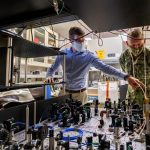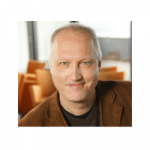Quantum News Briefs June 29: EU experts call for focus on Quantum Computing in Chips Act, UChicago hosts Quantum & Data Science workshop in London, How to bridge quantum’s ‘Valley of Death’ and MORE

Quantum News Briefs opens today with a summary of a recent European Innovation Area Summary discussion on quantum technology and the EU’s upcoming Chips Act. Still in Europe, we share the UofChicago’s hosting of a quantum and data science workshop in London. Then we move to a important discussion suggesting how quantum technology can avoid the innovation community’s feared “Valley of Death,” and MORE.
*****
EU Experts Call for Focus on Quantum Computing in Chips Act
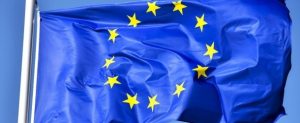 Policy, industry and science representatives discussed the connection between quantum technology and the upcoming Chips Act at the European Innovation Area Summit on Tuesday, June 28 in Brussels, an event under the patronage of the European Parliament. Meeting is summarized here; click here for Laura Kabelka’s complete discussion on Euracitv.
Policy, industry and science representatives discussed the connection between quantum technology and the upcoming Chips Act at the European Innovation Area Summit on Tuesday, June 28 in Brussels, an event under the patronage of the European Parliament. Meeting is summarized here; click here for Laura Kabelka’s complete discussion on Euracitv.
“While for semiconductors, the EU is lagging behind so much already”, the EU should invest in the next technologies, such as quantum computing, an area “where the EU is actually a leader”, said Tom Berendsen, Dutch MEP and member of the file’s leading European Parliament Committee on Industry, Research and Energy (ITRE).
Although the Chips Act also aims to make the EU competitive in semiconductor supply chains, the main driving force is to become “strategically autonomous”, Berendsen added.
“We will never have the same money as in the US or in Asia, but we have the cooperation,” Berendsen said, explaining that cooperation among member states will be an important asset in achieving this goal.
While the EU is leading research on quantum computing, it is not yet in the application state, according to Menno Veldhorst, team leader at the quantum research institute QuTech. In order to move forward, further research, as well as an upscaling of production, is needed, the experts agreed, toward which goal increased investments and pilot lines via the Chips Act will be crucial.
*****
UChicago Hosts Quantum and Data Science Workshop in London
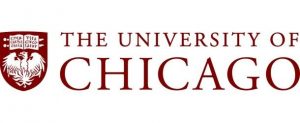 Leaders in quantum science, economics, defense, and data science from the United States and the United Kingdom met this week in London for a Quantum and Data Science Workshop hosted by the University of Chicago. The two-day conference gathered key representatives from both countries to forge new alliances and strengthen existing partnerships in the global race to establish quantum technology and explore the growing data science industry.
Leaders in quantum science, economics, defense, and data science from the United States and the United Kingdom met this week in London for a Quantum and Data Science Workshop hosted by the University of Chicago. The two-day conference gathered key representatives from both countries to forge new alliances and strengthen existing partnerships in the global race to establish quantum technology and explore the growing data science industry.
Held at the University of Chicago Booth School of Business London facilities June 20-21, the UChicago Quantum and Data Science Workshop is the second meeting recently convened between U.S. researchers and European leaders. A Paris Conference on Quantum Technology and Sustainability led by UChicago in May also aimed to drive innovation for global impact and build partnerships with industry, academia, and government.
“International collaboration is a critical element to drive meaningful advances in quantum information science and engineering, the expansion of which will have profound implications for industry, government and national security,” said David Awschalom, the Liew Family Professor in Molecular Engineering and Physics at the University of Chicago.
*****
Quantum Sensors—Unlike Quantum Computers—Are Already Here
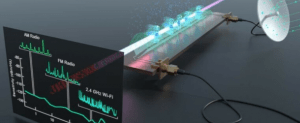 Quantum sensors use the smallest amounts of energy and matter to detect and measure tiny changes in time, gravity, temperature, pressure, rotation, acceleration, frequency, and magnetic and electric fields. They’ve been commercially available in various forms for more than a half-century; think of a magnetic resonance imaging, or MRI, machine, which tracks flips in the magnetic spin of individual hydrogen atoms to peer into a body. But recent progress in the field suggests that such sensors will soon bring a revolution in measurement and signals intelligence—possibly by making it far easier to detect submarines, spacecraft, and underground facilities.
Quantum sensors use the smallest amounts of energy and matter to detect and measure tiny changes in time, gravity, temperature, pressure, rotation, acceleration, frequency, and magnetic and electric fields. They’ve been commercially available in various forms for more than a half-century; think of a magnetic resonance imaging, or MRI, machine, which tracks flips in the magnetic spin of individual hydrogen atoms to peer into a body. But recent progress in the field suggests that such sensors will soon bring a revolution in measurement and signals intelligence—possibly by making it far easier to detect submarines, spacecraft, and underground facilities.
Strategists must understand the new capabilities that quantum sensing will provide and start planning countermeasures today. Here are three examples that help explain why.
–Measuring time
–Location, location, location
–Seeing through walls and water
The importance of quantum sensors has largely eluded policymakers, even though the technology has been improving for decades. Part of the reason is surely the hype surrounding quantum computers, whose challenges to practicability include their need to be shielded from interacting with the rest of the universe until its computation is complete. But quantum sensors, which put this extreme sensitivity to use, are here today and rapidly getting better.
*****
To Bridge Quantum’s Valley of Death, Labs Need Funding and Workforce
 Quantum technologies are among the more elusive emerging tech fields, largely due to the complicated physics that bely how the technology is set to function.
Quantum technologies are among the more elusive emerging tech fields, largely due to the complicated physics that bely how the technology is set to function.
Travis Humble, the interim director of the Quantum Science Center told Nextgov, “Investing in continued quantum sciences research and supporting a growing workforce are two key areas that will translate to viable quantum devices and applications.
Humble described the current state of quantum technology, specifically quantum computing, as facing more of a “technology gap” instead of the tech sector’s typical valley of death. He said this is partially because of the ongoing need to ask more questions about the fundamental science belying quantum physics.”Investing in continued quantum sciences research and supporting a growing workforce are two key areas that will translate to viable quantum devices and applications.
“I don’t think that we have enough knowledge yet in this area, to jump straight to building these types of products,” he said. “In addition to the funding, the other challenge at the moment is building out the workforce that is capable of developing these ideas. Because it’s fundamental science because it’s research and development, we actually need people who have familiarity with quantum mechanics as well as the types of systems that it will be translated into.”




















